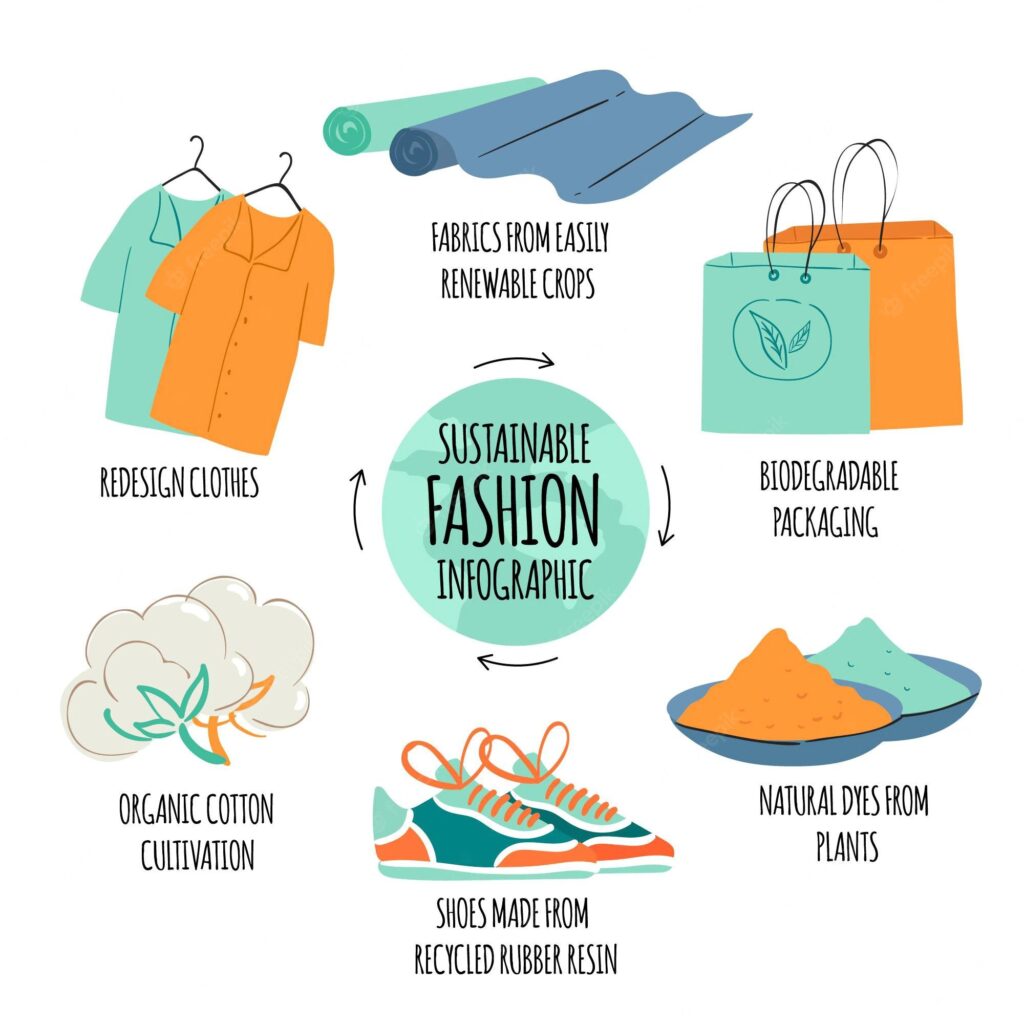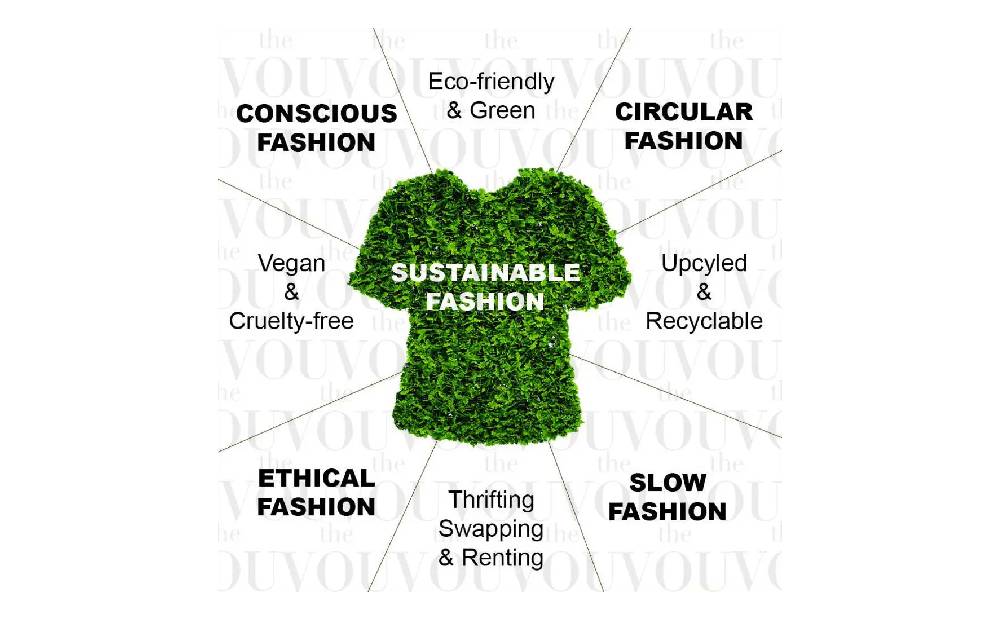Introduction
Sustainable Fashion:- In recent years, the fashion industry has experienced a significant shift towards sustainable practices, driven by growing awareness about the environmental and social impacts of fast fashion. Sustainable fashion is a concept that encourages ethical production, consumption, and disposal of clothing, promoting a more responsible approach to style without compromising our planet’s well-being. In this blog, we will delve into the world of sustainable fashion, exploring its key principles, benefits, and actionable steps we can take to support this transformative movement.
Understanding Sustainable Fashion
Sustainable fashion encompasses various aspects, including eco-friendly materials, fair labor practices, waste reduction, and circular economy principles. It emphasizes a holistic approach to fashion, considering the entire lifecycle of a garment, from its design and production to its use and eventual disposal. By adopting sustainable practices, we can address the industry’s negative environmental and social impacts while fostering a more conscious and inclusive fashion culture.
The Benefits of Sustainable Fashion
Environmental Impact:
The fashion industry is a significant contributor to pollution, greenhouse gas emissions, and resource depletion. By choosing sustainable fashion, we can reduce our carbon footprint, minimize water usage, and limit the release of harmful chemicals into the environment. Sustainable materials like organic cotton, hemp, and recycled fibers help conserve resources and promote biodiversity.
Ethical Production:
Fast fashion often relies on exploitative labor practices, including sweatshops and child labor. Embracing sustainable fashion means supporting brands that prioritize fair wages, safe working conditions, and workers’ rights. It enables us to contribute to a more equitable industry that respects human dignity and social justice.
Economic Opportunities:
Sustainable fashion has the potential to generate new economic opportunities. Local artisans, small-scale producers, and sustainable startups can thrive when consumers shift their preferences towards ethical and eco-conscious brands. By supporting these businesses, we contribute to the growth of a more sustainable economy.
Personal Style and Quality:
Contrary to the perception that sustainable fashion is dull or limited, it offers a wide range of stylish, unique, and high-quality options. By investing in timeless, well-crafted pieces, we move away from the cycle of fast fashion trends and build a wardrobe that truly reflects our personal style.

Practical Steps Towards Sustainable Fashion
Conscious Consumption:
The first step is to buy less and choose well. Prioritize quality over quantity, invest in versatile pieces that can be worn in multiple ways, and opt for timeless designs that won’t quickly go out of style. Consider second-hand and vintage clothing, as they offer unique options while reducing waste.
Research Brands:
Educate yourself about the brands you support. Look for certifications and labels that indicate sustainable practices, such as organic, Fair Trade, or cruelty-free. Seek out transparency in their supply chains, ensuring they uphold ethical and environmental standards.
Support Local and Independent Designers:
By supporting local designers and small-scale producers, you contribute to the growth of sustainable fashion within your community. Attend local fashion events, explore independent boutiques, and engage with designers who prioritize ethical and eco-friendly practices.
Extend the Life of Your Clothes:
Take care of your garments by following proper washing and storage instructions. Repair items instead of discarding them at the first sign of wear and tear. Donate or sell unwanted clothes to give them a second life and prevent them from ending up in landfills.
Collaborative Efforts and Industry Initiatives
Fashion Revolution:
Fashion Revolution is a global movement that advocates for greater transparency, sustainability, and ethics in the fashion industry. It encourages consumers to ask #WhoMadeMyClothes and urges brands to disclose information about their supply chains. Participating in Fashion Revolution Week events and campaigns can amplify the demand for sustainable practices.
Sustainable Fashion Collaborations:
Many fashion brands are collaborating with sustainable initiatives and organizations to create innovative and eco-friendly collections. These collaborations help raise awareness, drive change, and create positive impact. By supporting such collaborations, we contribute to the growth of sustainable fashion.
Fashion Innovation:
Technology plays a crucial role in transforming the fashion industry. From 3D printing and digital design to sustainable textile innovations, advancements in technology provide opportunities to create more sustainable and efficient processes. Supporting and promoting fashion technology companies can drive positive change in the industry.
Education and Conscious Consumerism
Sustainable Fashion Education:
Educating ourselves about the environmental and social impacts of the fashion industry is key to making informed choices. Several online platforms, documentaries, and books provide valuable insights into sustainable fashion practices. By increasing our knowledge, we can become advocates for change and inspire others to embrace sustainability.
Renting and Swapping:
Renting clothes and participating in clothing swaps are great alternatives to traditional consumption. Renting platforms allow us to wear stylish outfits for special occasions without the need to purchase them, reducing the demand for new clothes. Swapping events enable us to refresh our wardrobe sustainably, fostering a sense of community and reducing waste.
Minimalism and Capsule Wardrobes:
Embracing a minimalist approach to fashion can greatly contribute to sustainability. Creating a capsule wardrobe with versatile, timeless pieces encourages us to be mindful of our choices and reduce our environmental footprint. It promotes a more conscious and intentional way of dressing.

Influencing the Fashion Industry
Consumer Demand:
As consumers, our choices have the power to shape the fashion industry. By demanding transparency, ethical practices, and sustainable options, we create a market demand that compels brands to change their practices. Expressing our preferences through purchases and vocalizing concerns can drive industry-wide shifts towards sustainability.
Policy Advocacy:
Supporting and advocating for policies and regulations that promote sustainability within the fashion industry is crucial. Engaging with local and global initiatives that focus on sustainability and fair trade helps create a supportive environment for ethical fashion practices. Encouraging policymakers to prioritize sustainable fashion can lead to systemic changes.






